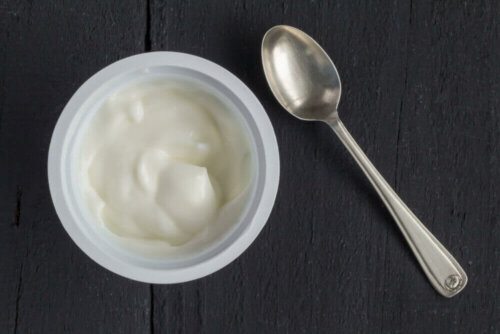The Healthiest Foods for the Elderly


Written and verified by the nutritionist Saúl Sánchez Arias
Some food is especially relevant in the diet of older people. In fact, this population group needs to make some changes to their regular diet. With these changes, you can reduce the risk of developing certain conditions, while mitigating the ailments of age. Keep reading to find out the healthiest foods for the elderly!
We’re going to present to you a series of food items that are essential in the diets of the elderly. However, don’t forget that you also need a varied diet. Also, practicing physical exercise on a regular basis can help alleviate many of your ailments.
Yogurt, one of the healthiest foods for the elderly
During old age, the intestinal flora is greatly changed. Its diversity is reduced and its functionality decreases. To alleviate this process, you should regularly consume yogurt and fermented milk products. That way, you’ll provide your body with a good amount of probiotics, which will be in charge of populating your gastrointestinal tract.
Adding this type of food to the diets of the elderly leads to an improvement in intestinal health and bone density, according to an article published in the journal Osteoporosis International.
However, you can’t eat just any type of yogurt. It’s important to choose those that have been made with whole milk, but that don’t have added sugars.

Apples to improve intestinal flora
In the same way that your body needs probiotics, it also needs a ration of soluble fiber in order to recover bacterial diversity.
The best food to fulfill this function is the apple. It contains a good amount of pectin, a dietary fiber capable of fermenting in the intestine.
As a result of this fermentation, your body gets short-chain fatty acids with anti-inflammatory capacity, and a selective growth of the intestinal flora, as shown in a study carried out in 2017.
An effective strategy when you want to restore your microbiota can be to eat apples and yogurt together. Soluble fiber protects bacteria from stomach acid, allowing more of them to reach the intestine for colonization.
Learn more: What Is Normal Microbiota?
Fatty fish twice a week for the elderly
Another essential food in the diet of older people is fatty fish. This food has a significant amount of omega 3 fatty acids, with high anti-inflammatory capacity.
Regularly eating fatty fish is associated with a reduction in cardiovascular risk, which is ranked as one of the leading causes of death in the first world. Of course, you should choose small fish.
Larger fish can contain significant levels of mercury, a metal with neurotoxic potential. In addition, you should avoid frying these fish. Frying destroys omega 3 acids and transforms them into trans fats, with inflammatory capacity and health risks.
Older people should include fatty fish in their diet at least twice a week. The best cooking methods are grilled, baked, or steamed. You should accompany them with various vegetables, instead of foods with a lot of carbohydrates.

You may also be interested in: The Benefits of Bluefish
Foods for the elderly: they play an important role
Older people undergo a series of changes at a physiological and hormonal level. To mitigate the effects of these changes, it’s important to make changes in your usual diet. Including foods with anti-inflammatory and antioxidant effects is essential.
One of the changes that experts are most concerned about during old age is the loss of diversity at the microflora level. This can lead to a deficit in the assimilation of certain nutrients, as well as a decrease in the production of short-chain fatty acids.
To counteract this effect, we recommend that you increase your consumption of fermented dairy products and soluble fibers. In addition, you can think about whether or not to include probiotic supplements.
In order to keep systemic inflammation under control, you should increase your consumption of fatty fish. This type of food contains omega 3 fatty acids.
Its anti-inflammatory effect is essential at this stage of life. However, you should avoid eating large fish frequently, as their mercury levels could be harmful.
All cited sources were thoroughly reviewed by our team to ensure their quality, reliability, currency, and validity. The bibliography of this article was considered reliable and of academic or scientific accuracy.
- Laird E., Molloy AM., McNulty H., Ward M., et al., Greater yogurt consumptions is associated with increased bone mineral density and physical function in older adults. Osteoporos Int, 2017. 28 (8): 2409-2419.
- Faith Chung WS., Meijerink M., Zeuner B., Holck J., Prebiotic potential of pectin and pectic oligosaccharides to promote anti inflammatory commensal bacteria in the human colon. FEMS Microbiol Ecol, 2017.
This text is provided for informational purposes only and does not replace consultation with a professional. If in doubt, consult your specialist.








